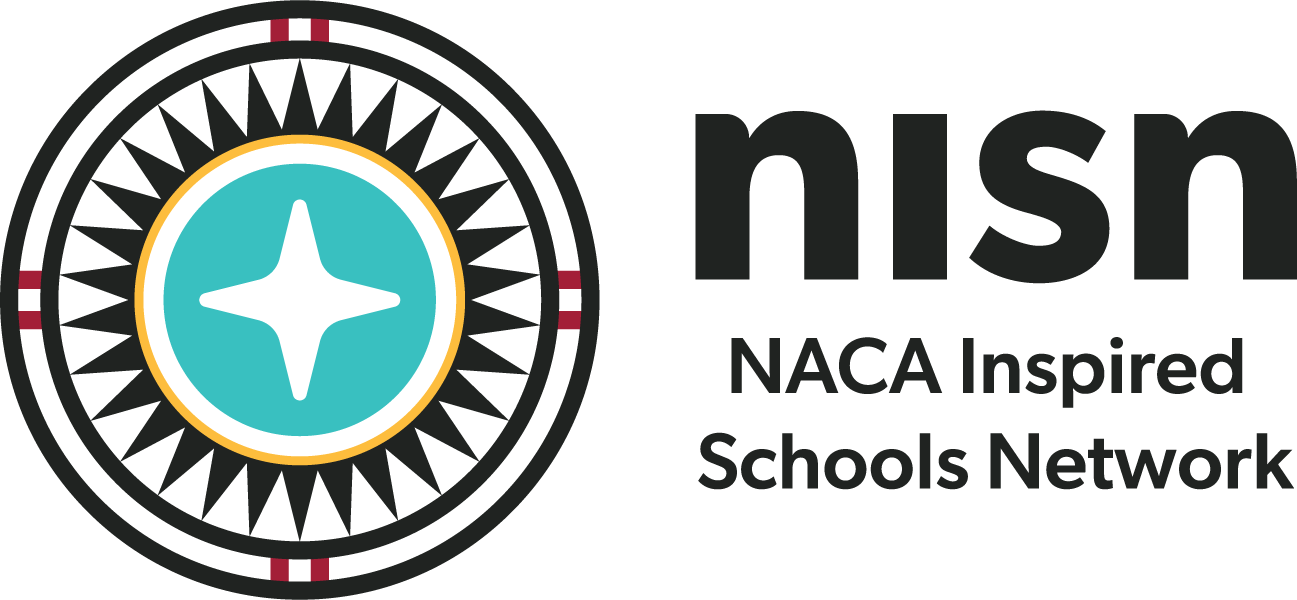Ramey Growing Thunder, Ph.D. (Right) and Craig Merrick (Left)
We are thrilled to announce the selection of Ramey Growing Thunder, Ph.D. (Fort Peck Assiniboine and Sioux Tribes, Diné), and Craig Merrick (Dakota Sioux, Northern Cheyenne Tribe) as our newest School Design Fellows. Their exceptional skills and passion for Indigenous education will be instrumental in opening new schools. By centering the voices and needs of their communities, they will ensure that these schools reflect local values and traditions. They will emphasize student holistic wellness, integrating emotional, physical, and cultural health into the curriculum. With a focus on academic relevance, Growing Thunder and Merrick will provide education that prepares students for the future while honoring their community's ancestry. Fostering identity development, they will create environments where students can grow confidently in their cultural identities, ready to thrive in a rapidly changing world. We are confident that their initiatives will significantly impact the local educational landscape and serve as models for schools nationwide.
A Champion of Language, Culture, and Indigenous Education
Growing Thunder is a distinguished educator and cultural advocate with deep ties to the Fort Peck Assiniboine and Sioux Tribes in Northeast Montana. For over a decade, she has been Fort Peck Tribes’ Director of Language and Culture, instrumental in preserving the Nakoda and Dakota languages and ensuring integration into the community's daily life. Her unwavering commitment to culture and expertise in navigating federal, state, tribal, and private grants make Growing Thunder a critical asset in shaping the infrastructure for her community’s school. With a Ph.D. in Interdisciplinary Studies and extensive experience in cultural and linguistic anthropology, Native American studies, and educational leadership, she will guide the creation of a Kindergarten through 4th grade school with plans to expand to 12th grade. Her foresight in encouraging Fort Peck youth to attend college and become future teachers has come to fruition. Growing Thunder has fifteen certified teachers ready to join the journey.
Growing Thunder uses her late father’s words, “When you learn to stand, never sit down,” as a reminder of her firm foundation and commitment to continue to stand as she works toward opening the doors to a school that will foster Indigenous knowledge and academic excellence. She states, “I’m finally here, a lifetime goal I worked so hard to get to…and my tribe is behind me saying, ‘Hoka hey!’ [Let’s Go!]”
Hupa Language Immersion School to Preserve Language and Culture
The Hupa Language Immersion Nest was founded by Hoopa Valley Tribal members Sara Merrick, Jenna Hailey, Erika Tracy, and Melissa Sanchez in 2023 under the umbrella of their non-profit Xine:wh-ding [A Time and Place for Language] Inc. In its second year, the Nest provides a Hupa land and cultural-based early childhood education program for 11 children ages two to four and their families on the Hoopa Valley Indian Reservation in Northern California. Craig Merrick is taking an administrative role with this team to help expand the Immersion Nest into an Elementary school with the hopes of eventually serving students up to 8th grade. Merrick’s connection to the Hoopa Valley Tribe is through his wife, Sara L. Chase Merrick, Ph. D. (Hoopa Valley Tribe, Shinnecock), and their son who is a student in the Nest. The Merricks share investment to preserve the Hupa language with community support. “This has turned into a family goal: to get the language immersion school up and running,” Craig Merrick mentions.
Merrick brings a rich blend of classroom experience and leadership, focusing on strengthening Indigenous youth through culturally relevant pedagogy. As a former high school and elementary school teacher in Hoopa, he successfully integrated local Indigenous knowledge into his subjects, creating a learning environment where students felt connected to their heritage while excelling academically. His leadership in educational and community initiatives, including serving as board president of Xine:wh-ding Inc., positions him as an ideal administrator and partner who will help develop an academically robust and culturally enriching school. Grounded in family and culture, Merrick wants to see Hoopa Valley grow, “I share the traditional values and understanding that language and culture isn’t something we possess, it is something we take care of…I’m here to uplift the children.”
Building a Stronger Future Together
Ramey Growing Thunder and Craig Merrick share a vision to create schools that honor Indigenous cultures while preparing students for future success. Their work as NISN School Design Fellows will directly impact their communities, ensuring that the schools they help build will be responsive to the needs, values, and aspirations of the students and families they serve. Both Fellows will receive guidance and mentorship from NISN staff to obtain successful authorization, anchor their schools in the four big ideas (Community-Led, Academic Relevance, Holistic Wellness, Identity Development), incorporate their own Mission-Driven Story Cycle, and a $85,000 annual salary during the three-year fellowship.
We look forward to their incredible contributions to leading this transformative initiative and are confident their leadership will inspire future generations. You can follow their journey by adding NISN to your social media channels.


